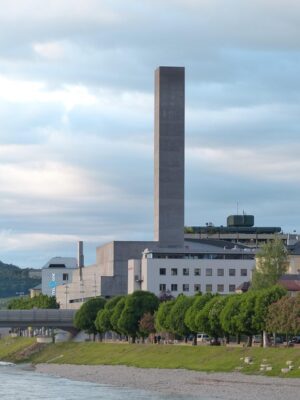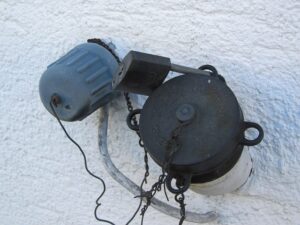Commercial electric boilers feature advanced safety mechanisms like redundant shutoff systems and pressure relief valves for enhanced protection. High-capacity models prioritize energy efficiency with precise temperature control, catering to diverse industrial and institutional heating needs. Their modular design simplifies installation and maintenance while meeting stringent safety standards, making them versatile for various applications. Choosing the right boiler depends on specific capacity and functionality requirements for optimal performance and reliability.
Commercial electric boilers, equipped with advanced safety features, offer peace of mind for business owners. This article delves into the intricate world of commercial electric boiler safety, focusing on redundant shutoff mechanisms. We explore how these mechanisms enhance safety, mitigate risks, and ensure smooth operations. From understanding key safety features to choosing the right boiler, this guide covers everything you need to know about the benefits of multiple safety layers in commercial settings, empowering informed decisions for your business needs.
- Understanding Commercial Electric Boilers' Safety Features
- Redundant Safety Shutoffs: A Comprehensive Overview
- Benefits of Multiple Safety Mechanisms in Boilers
- Common Boiler Issues and How Redundancy Mitigates Risks
- Choosing the Right Electric Boiler for Your Business Needs
Understanding Commercial Electric Boilers' Safety Features

Commercial electric boilers are designed with advanced safety features to ensure optimal performance and peace of mind for users. These boilers incorporate redundant safety shutoff mechanisms that promptly respond to potential hazards, such as excessive pressure or temperature. This dual-protection system includes both manual and automatic shutdowns, allowing for swift action in the event of any anomalies. By integrating these sophisticated safety measures, commercial electric boilers offer a reliable and secure heating solution.
Moreover, modern commercial boiler technology prioritizes energy efficiency with high-capacity electric boilers that balance performance with minimal environmental impact. Electric heating systems in these boilers are known for their precise temperature control, making them ideal for institutional heating needs. Whether it’s an electric steam boiler or an electric hot water boiler, the modular design of commercial HVAC systems allows for easy installation and maintenance, catering to a variety of applications, from industrial processes to comfortable indoor environments.
Redundant Safety Shutoffs: A Comprehensive Overview

Redundant Safety Shutoffs: A Comprehensive Overview
Commercial electric boilers are designed to prioritize safety above all else, incorporating advanced redundant safety shutoff mechanisms that double as a crucial layer of protection in industrial and institutional heating applications. These mechanisms ensure that should one component fail or experience malfunction, the boiler automatically shuts down, preventing potential hazards and damage. This proactive approach to safety is particularly vital in high-pressure environments where electric steam boilers and commercial HVAC systems are utilized, ensuring optimal operating conditions and peace of mind for users.
The implementation of redundant safety shutoffs in commercial electric boilers translates into enhanced efficiency and reliability for various applications, from industrial electric heating processes to energy-efficient modular boiler systems. By integrating these sophisticated features, manufacturers cater to the demands of modern facilities that require both top-tier performance and stringent safety standards. This commitment to comprehensive protection underscores the evolving nature of commercial boiler technology, ensuring that operations remain seamless while prioritizing the well-being of personnel and infrastructure.
Benefits of Multiple Safety Mechanisms in Boilers

Multiple safety mechanisms in commercial electric boilers offer a multifaceted approach to ensuring peace of mind for business owners and operators. These advanced features go beyond basic compliance standards, providing an extra layer of protection against potential hazards. For instance, redundant pressure relief valves and temperature sensors not only detect aberrations promptly but also trigger automated shut-off processes, preventing catastrophic failures and minimizing downtime.
The integration of these safety mechanisms is particularly beneficial in high capacity electric boilers used for institutional heating and commercial HVAC systems. They contribute to the overall energy efficiency of these electric heating systems by avoiding unnecessary energy losses during malfunctional operations. Moreover, they ensure the safe operation of electric steam boilers and electric hot water boilers, making them reliable solutions for various industrial applications, from manufacturing plants to large-scale institutions.
Common Boiler Issues and How Redundancy Mitigates Risks

Commercial electric boilers are a significant component in many industrial and institutional settings, providing vital heating for processes and spaces. However, they also present potential risks associated with failure or malfunction, which can lead to costly downtime and safety hazards. Common issues include electrical failures, pressure buildup, and leaks, often caused by outdated components, harsh operating conditions, or improper maintenance. These problems can result in equipment damage, fire, or even explosion scenarios.
Redundancy in safety shutoff mechanisms is a powerful strategy to mitigate these risks. By implementing multiple shutdown systems, commercial electric boilers become more robust and reliable. For instance, advanced temperature sensors and pressure relief valves work in tandem to ensure that if one system fails, another takes immediate action, stopping the boiler safely. This redundancy is especially crucial for high-capacity electric boilers and industrial electric heating applications, where energy efficiency and consistent performance are paramount. It allows commercial HVAC systems and institutional heating operations to maintain smooth operations, reduce downtime, and enhance overall safety.
Choosing the Right Electric Boiler for Your Business Needs

When selecting a commercial electric boiler, understanding your business’s specific needs is paramount. Different applications demand varying capacities and functionalities. For instance, high-capacity industrial processes may require robust electric steam boilers capable of sustained, powerful heat generation, while institutional heating in larger facilities could benefit from modular boiler systems offering scalability and flexibility.
Consider the energy efficiency goals of your establishment too. Modern commercial electric heating systems incorporate advanced technologies that significantly reduce energy wastage, making them eco-friendly options. Look for features like intelligent temperature control, fast start-up times, and low-emission designs to ensure not only optimal performance but also long-term cost savings in your commercial HVAC systems.
Commercial electric boilers, equipped with advanced redundant safety shutoff mechanisms, offer businesses unparalleled peace of mind. By understanding these safety features and their benefits, you can make informed decisions when selecting the right electric boiler for your establishment. The comprehensive overview presented here highlights the importance of multiple safety mechanisms in mitigating common boiler issues, ensuring smooth operations and a safer working environment.






